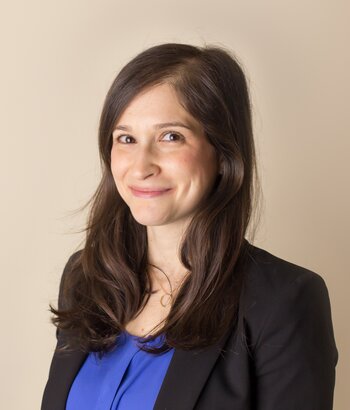Yearly Archives: 2021
Dec 22, 2021 Victoria J. HanemanTrusts & Estates
Allison Anna Tait,
Inheriting Privilege, 106
Minn. L. Rev. __ (forthcoming 2022), available at
SSRN.
Over one’s lifetime, advantage processes have a cumulative and potentially significant impact on inequality. The notion of cumulative advantage, or behavior processes whereby wealth continues to fall into the hands of individuals based upon how much they have already accumulated, is a concept to which many labels are applied: preferential attachment; “the rich get richer”; the Matthew effect. Most law school courses on trusts and estates consider (to some extent) the privilege, power, and opportunity that flows from economic wealth. Conversely, inherited social and cultural capital create advantage processes that are arguably no less significant, driving behaviors that produce tacit economic benefits—the parent who pays for extra tutoring so that a child may outperform peers on an entrance exam; the professional able to develop an instant sense of rapport and connection with other successful professionals; the job candidate who comports herself with high cultural knowledge (au courant but appropriate attire, elegant table manners, knowledge of fine arts, broad functional vocabulary). Although the intergenerational impact of inherited cultural capital is fascinating and relevant as an advantage process, the implications have been largely overlooked by legal scholars contemplating inheritance frameworks. Inheriting Privilege by Allison Anna Tait considers the family trust as a mechanism for intergenerational transfer of privileged social standing and cultural hierarchies.
The article encourages us to think more broadly about patrimonies: family resources usually considered by legal scholars in the narrow context of financial assets. Social and cultural capital is manifest within the patrimonies of the wealthy, with season tickets to the polo club, country club memberships, fee-paid legacy status within initiation-based social clubs, or box seats to performing arts events. Cultural objects, heirloom possessions, and shared rituals may also be part of the patrimony. Notably, treasured collectibles may sometimes be a part of both the economic patrimony and the family’s cultural capital. Trust beneficiaries may have access to priceless antiquities without ever investing capital to purchase them (“only middle-class people buy furniture (because upper-class people inherit it)”). Access to high-value antiquities, artwork, and social memberships—or any of the conspicuous markers of elite white culture—is a mantle of privilege and one inherits unearned opportunities when cloaked with this mantle. Professor Tait’s argument that young people are paid more and promoted far earlier when they possess a wealth of social capital is thoroughly supported. Continue reading "Wealth, Privilege, Power, And Opportunity"
Dec 22, 2021 Paul OhmTechnology Law
Alicia Solow-Niederman,
Information Privacy and the Inference Economy (Sept. 10, 2021), available at
SSRN.
A decade ago, Charles Duhigg wrote a story for the New York Times that still resonates today, revealing that Target could predict its customers’ pregnancies and delivery dates from changes in their shopping habits. This and similar revelations pose a difficult question: how do we protect vulnerable people from the power of inferences? At the time, I wondered aloud whether we ought to regulate harmful data-driven inferences and how we would do it, which sparked characteristically overheated responses from the libertarian punditry.
A decade on, the ceaseless progress of machine learning (ML) has exacerbated these problems, as advances in the state-of-the-art of prediction make Target’s old algorithm seem like child’s play. ML techniques have become more accessible and more powerful, fueled by advances in algorithms, improvements in hardware, and the collection and distribution of massive datasets chronicling aspects of people’s lives we have never before been able to scrutinize or study. Today, obscure startups can build powerful ML models to predict the behavior and reveal the secrets of millions of people. Continue reading "How to Regulate Harmful Inferences"
Dec 21, 2021 Kristin HickmanTax Law
“Don’t sweat the small stuff” was one of my father’s favorite sayings. It’s the thought that has always come to my mind whenever thinking about, and teaching, de minimis rules in the tax code. De minimis rules keep the IRS from seeming petty, for example by allowing an employer that provides free bagels in the break room from having to report the bagels as income to its employees. De minimis rules also allow taxpayers to avoid complexity and hassle when the dollar amounts at stake are small, for example by permitting taxpayers to immediately deduct many small capital expenditures, rather than having to amortize or depreciate them over several years. In short, I have always thought of de minimis rules as making a hugely complicated tax system just a little easier to navigate, and perhaps just a little kinder. At worst, de minimis rules have always seemed fairly harmless — “the equivalent of rounding errors in the design of the tax law.” Reading The Surprising Significance of De Minimis Tax Rules by Leigh Osofsky and Kathleen DeLaney Thomas has forced me to rethink these long-held intuitions.
Osofsky and Thomas begin their analysis of de minimis tax rules with an overview and a typology of sorts. Functionally, some de minimis tax rules indeed eliminate taxpayer burdens and protect unsophisticated taxpayers from finding themselves ensnarled in complexity. The IRS also benefits in these instances, by avoiding enforcement and other administrative costs. Other de minimis tax rules, however, are simply the result of rent-seeking behavior and benefit only sophisticated taxpayers pursuing complicated transactions. While de minimis tax rules can protect taxpayers from complexity, they also create complexity. And sometimes, de minimis tax rules that seem small turn out not to be so small after all, whether due to unintended consequences or interpretative choices that expand their scope. Continue reading "Perhaps We Should Sweat The Small Stuff"
Dec 20, 2021 Cary C. FranklinConstitutional Law
In the 1980s, when conservative scholars first rallied around originalism, their questions often mirrored those of historians. Back then, originalists were interested in original intent, and traditional historical methods provided the most obvious means of discovering it. But intent-focused originalism encountered devastating critiques. Paul Brest noted the frequent impossibility of identifying a single coherent intention among the Constitution’s framers. Jefferson Powell argued that originalism itself was not originalist, as the framers did not intend for the Constitution to be interpreted in this way. Such critiques led most originalists to eschew intent and focus instead on original public meaning: how the Constitution’s words would have been understood at the time they were written. This shift has increasingly driven a wedge between originalists and historians, as originalists turn to tools such as electronic corpora to elucidate the meaning of the Constitution and reject historical inquiries not focused on textual meaning as irrelevant or an obstacle to valid interpretation. Originalist Randy Barnett suggests “[y]ou don’t need a PhD. in history” to discover the semantic meaning of words, even in the distant past. Historian Jonathan Gienapp claims originalism today “is an affront to all historians.”
Gienapp’s new article takes aim at contemporary public meaning originalism. It levels a critique that, if correct, has the same foundational impact on today’s originalism that Brest’s and Powell’s critiques had on earlier versions of the theory. Gienapp’s central claim is that the framers’ “conception of constitutional writtenness was worlds apart from” the conception of constitutional writtenness originalists now take for granted. No assumption is more foundational to contemporary originalism “than the idea that the Constitution is essentially a written text: that the Constitution just is the document written during the summer of 1787.” On this view, the Constitution had no content before it was written; it acquired its content only through express addition; and its text is the exclusive and comprehensive repository of such content. By assuming the Constitution just is the written text and nothing else, Gienapp observes, “originalists enable originalism to appear as an intuitive way to interpret it.” Continue reading "The Construction of an Originalist Constitution"
Dec 17, 2021 Yael LifshitzProperty
Property law scholarship is often framed in resource-agnostic terms. The field of Property is concerned, fundamentally of course, with governing “things.” But the conceptual or theoretical frameworks often assume they can apply equally to any and all resources.
Monika Ehrman challenges this notion in her recent work, Application of Natural Resources Property Theory to Hidden Resources. The key contribution of her article is in underscoring just how important the visibility of a resource (or actually, lack thereof) can be to the formation of property.
Ehrman hones in, specifically, on hidden resources. What are “hidden” resources? They are resources we can’t see with our naked human eye. This can include resources that are concealed from us because of their physical location. For example, subsurface reservoirs of oil, gas, and groundwater are all examples of hidden resources.
The category can also include resources that are not immediately apparent to us such as migration paths, solar radiation, and wind. The same category could also encompass property rights that are not evident to a casual viewer such as, potentially, security interests. Continue reading "Hidden Resources"
Dec 16, 2021 Steve GoldLexEnvironmental Law
When Bernard Goldstein speaks about the intersection of science and law in environmental policy, people listen. Or at least they should, in light of Dr. Goldstein’s distinguished record of scholarship, public service, and advocacy at this nexus. He is now in his sixth decade of writing about protecting public health from a vast array of toxic exposures. His latest contribution to that discussion is well worth reading and reflecting upon.
Readers should not be deterred by the article’s unwieldy title, nor by the prominent mention of a well-known person who skipped Joe Biden’s inauguration. Goldstein’s article is much more than a shooting-fish-in-a-barrel critique of an expired Administration. As Goldstein points out, a future similar assault on the scientific basis for environmental policy “is far from impossible,” and “not . . . from just one side of the political spectrum.” (P. 339.) So, rather than focusing on ideological differences and policy preferences, Goldstein attempts to explain the essential nature of such attacks and to suggest potential defenses. Continue reading "Taking Law’s “v.” Out of Environmental Policy Science (Again)"
Dec 15, 2021 Vivien HolmesLegal Profession
When Stephen Vaughan and Emma Oakley interviewed 57 lawyers in elite London firms, they were struck by a general ethical apathy. They explore this apathy in their well-known article, “Gorilla Exceptions” and the Ethically Apathetic Corporate Lawyer, and conclude that a strong justification for this apathy, in the minds of the lawyers interviewed, is the standard conception of legal ethics. The standard conception excuses lawyers from moral accountability for clients’ actions, holding that it is not the role of lawyers to judge the morality (as opposed to the legality) of clients’ actions. For the lawyers interviewed this justification, invoked most commonly in relation to criminal defence lawyers litigating within the confines of the adversary system, held, even though most if not all of them were engaged in transnational legal work, the consequences of which have effect across the world.
Cesar Arjona’s article, The Usage of What Country: A Critical Analysis of Legal Ethics in Transnational Legal Practice, questions whether the standard conception holds up in relation to transnational legal work. You may think you’ve heard all there is to hear about the standard conception, but I urge you to read Ajona’s article. He revisits the constitutive assumptions of the standard conception and asks whether those assumptions remain valid when applied to transnational practice. Spoiler, they don’t. Continue reading "Transnational Lawyers Need to Rethink their Legal Ethics"
Dec 15, 2021 Vivien HolmesLegal Profession
When Stephen Vaughan and Emma Oakley interviewed 57 lawyers in elite London firms, they were struck by a general ethical apathy. They explore this apathy in their well-known article, “Gorilla Exceptions” and the Ethically Apathetic Corporate Lawyer, and conclude that a strong justification for this apathy, in the minds of the lawyers interviewed, is the standard conception of legal ethics. The standard conception excuses lawyers from moral accountability for clients’ actions, holding that it is not the role of lawyers to judge the morality (as opposed to the legality) of clients’ actions. For the lawyers interviewed this justification, invoked most commonly in relation to criminal defence lawyers litigating within the confines of the adversary system, held, even though most if not all of them were engaged in transnational legal work, the consequences of which have effect across the world.
Cesar Arjona’s article, The Usage of What Country: A Critical Analysis of Legal Ethics in Transnational Legal Practice, questions whether the standard conception holds up in relation to transnational legal work. You may think you’ve heard all there is to hear about the standard conception, but I urge you to read Ajona’s article. He revisits the constitutive assumptions of the standard conception and asks whether those assumptions remain valid when applied to transnational practice. Spoiler, they don’t. Continue reading "Transnational Lawyers Need to Rethink their Legal Ethics"
Dec 14, 2021 Lael WeinbergerLegal History
Natural law is a topic that comes up frequently in legal history and legal theory but it has only rarely been the focus of study by American historians. Stuart Banner’s new book, The Decline of Natural Law, about how American lawyers used natural law and why they stopped doing so brings some welcome light to this important subject. A few years ago, the great historian of English law Richard Helmholz bridged the gap from Europe to America with his insightful volume Natural Law in Court. Banner picks up where Helmholz left off, to explore why practicing lawyers and judges stopped invoking natural law (and pointing to the nineteenth century as the key transitional period).
Natural law, as used in this book, refers to the idea that certain principles of law can (and ought to be) perceived by right reason in accord with the nature of things. This was often explained, historically, as a characteristic of God’s design for the world (though natural law as such was accessible to reason without any reliance on special revelation). The title of Banner’s book immediately tells us that his is a declension narrative. In the century-plus that is the focus of his book, natural law went from being a widely accepted part of American law to being rejected as unworkable and naïve. Continue reading "Telling the Story of Natural Law in America"
Dec 13, 2021 Alma DiamondJurisprudence
Rob Mullins,
Presupposing Legal Authority, __
Oxford J. Legal Stud. __ (forthcoming), available at
SSRN.In Essays on Bentham, Hart noted the importance of what he termed “authoritative legal reasons” to legal theory. In this idea–of reasons that apply to us independently of their content and in that special modality of foreclosing our normal deliberation–lies the “embryonic form” of legality. More simply put: law necessarily operates in the register of authority. This insight represents a foundational commitment held in common between various strands of legal philosophy, in part because of what Brian Bix has identified as a “hermeneutic turn”: theorists accept that an understanding of law must take account of the distinctive way in which it engages human agency and rational consciousness. Authority, as a practical concept, promises such an understanding of law.
The idea of law as a matter of authority plays an especially central role in positivist legal theory, in no small part due to Joseph Raz’s influential work on the topic. Raz and his many followers argue that law necessarily claims moral authority. We can see this, it is generally explained, in the deontic language used by legal officials (especially judges). And such claims to authority, Raz insisted, should be understood in moral terms. Much of recent positivist legal theory grapples with this final thesis: how can legal claims to authority be understood in moral terms, and what would that mean for the separation thesis? Rather less attention has been devoted to the first part: that law necessarily claims authority. In his forthcoming article, Presupposing Legal Authority, Rob Mullins calls this the “claim thesis.” He offers a long-overdue, thorough, and incisive scrutiny of the thesis. In doing this, he also invites us to revisit our understanding of the authority of law. Continue reading "Revisiting Law’s Claim of Authority"














